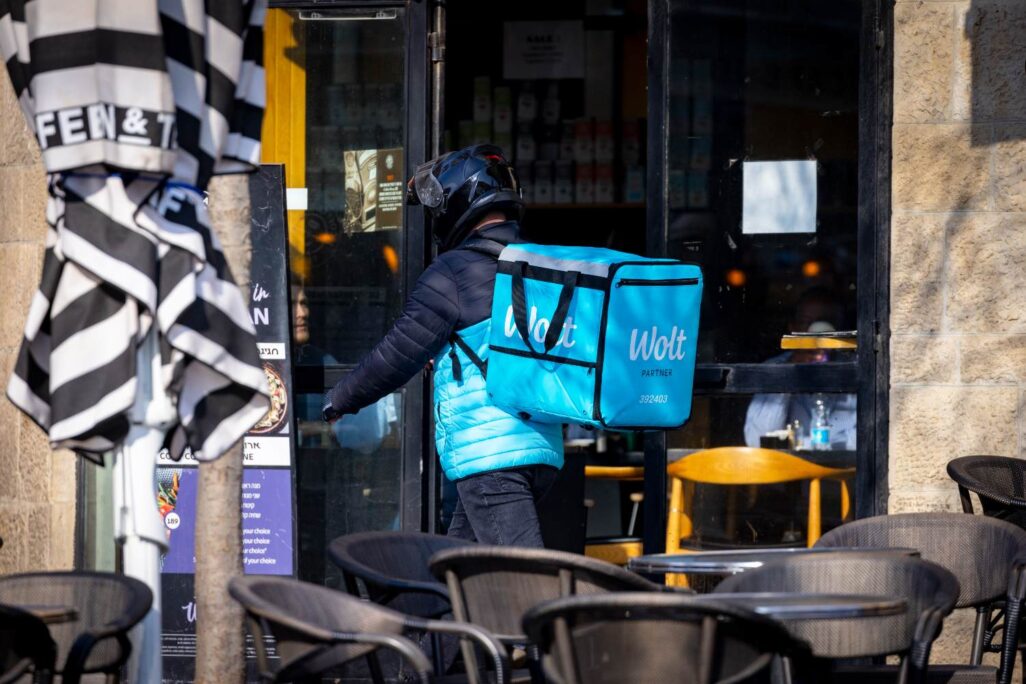
The delivery giant Wolt admitted on Thursday that it violated competition laws when it gave priority in its app to restaurants that deliver exclusively via Wolt. According to an announcement by the Competition Authority, Wolt acted in a manner contradicting the provisions of the Economic Competition Law, and agreed to pay 8.5 million shekels to the State Treasury as part of an agreement with the Competition Commissioner.
Wolt operates a platform for ordering food delivery from restaurants: upon opening the application, the restaurants appear in what are known as "carousels.” Within each carousel an alternating display of restaurants are shown, with each group displaying common characteristics as defined by Wolt.
Until January 2022, Wolt operated a carousel in the Tel Aviv area called "Only at Wolt,” which included only restaurants that delivered their food exclusively via Wolt. The carousel appeared in a high position on the platform, increasing exposure to those restaurants, which according to the Competition Authority, raised a fear of harming the competition. Following an inspection conducted by the Authority, Wolt removed the carousel "Only at Wolt" from the platform.
In the recent agreement with the Competition Authority, Wolt has agreed that the operation of the carousel could harm competition and was contrary to the provisions of the Economic Competition Law. Within the period that the Competition Authority refers to as the “COVID period,” Wolt's size reached its peak, and restaurants came to almost completely depend on Wolt for sales.
The agreement between Wolt and the Competition Authority is open for public comments for 29 days, until June 4, 2023, before it is decided whether to submit it for approval to the Competition Tribunal.
Wolt stated in their response: "Wolt revolutionized Israel in everything related to restaurant delivery. It introduced innovation, dependable customer service, immediate delivery and ordering convenience at the highest level, which was unknown in Israel until its introduction at the end of 2018. With the help of the technological platform’s accessibility to customers, couriers and businesses, Wolt accounted for a significant increase in the number of restaurants that allow delivery orders.This ranges from small local restaurants to large and well-known restaurants that did not offer delivery before the start of Wolt’s operations in Israel. In this way, Wolt has also contributed greatly to the Israeli restaurant industry and increased competition in it, for the benefit of the consumer as well as by increasing economic traffic in the local economy. We, as a company, believe that competition makes us a better and healthier company and we are in a constant process of innovation and improvement of what we offer both users and businesses on the platform.
“In 2019, as part of its entry into Israel and as an enticement to restaurants that were not offering online deliveries, Wolt offered restaurants various options for exposure within the application. One of them was ‘Only at Wolt,’ which offered a platform to restaurants that did not offer deliveries before Wolt’s arrival in Israel. From the end of 2021, the use of the ‘Only at Wolt’ carousel was gradually reduced until it was eventually discontinued.
“Wolt saw the exposure offered through the carousel as a legitimate and useful way to promote the service, in terms of the restaurants and the customers. It turns out that according to the Competition Authority, within a certain time period and region, there was a potential for damage to competition that wasn’t consistent with the provisions of the law. As such, a settlement was reached with the Competition Authority. It is important to emphasize that the settlement does not include any claim for damage caused to the public or damage to actual competition."
This article was translated from Hebrew by Noah Mirkin.






